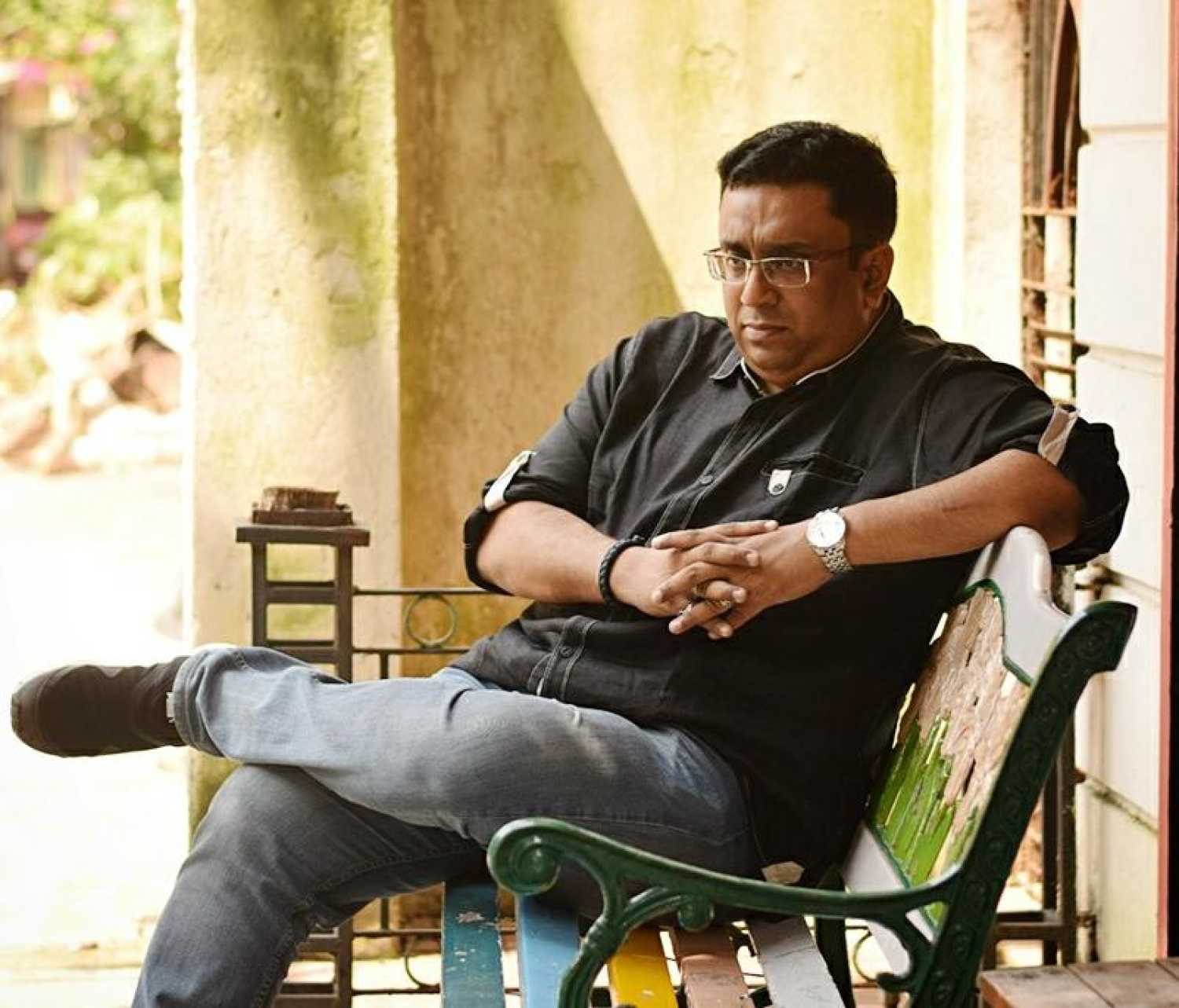The director talks about his belief in a world beyond the mortal one and the difficulty of making a film with a paranormal subject.
Love is the greatest Tantra, says Purbo Poschim Dokkhin Uttor Ashbei director Raajhorshee De
Kolkata - 22 Nov 2019 14:55 IST


Roushni Sarkar
Raajhorshee De's paranormal thriller Purbo Poschim Dokkhin Uttor Ashbei is based on the bestselling short-story collection Ebong Inquisition by Aveek Sarkar and features an ensemble cast of Arpita Chatterjee, Paran Bandopadhyay, Kamaleswar Mukherjee, Rudraprasad Sengupta, Rajesh Sharma, Aryann Bhowmik, Damini Basu, Gaurav Chakrabarty and Suchandra Vaanya.
“I have always been fascinated with the paranormal world, which pushed me to get hold of the book and read it,” Raajhorshee De told Cinestaan. However, at first the director was not sure of making a film out of it because the subject discussed in the book is quite a difficult one. He said it was a mammoth task bringing the short stories together and creating the concept for a movie out of them.
"If we look at Bengali literature, after Bibhutibhusan Bandopadhyay’s Taranath Tantrik, there has hardly has been any paranormal sleuth, if I may use the term," De said. "We have hardly had a fictional character who has appeared and solved an entire case supernaturally.”
Purbo Poschim Dokkhin Uttor Ashbei has been woven around three stories from the book, De said. All the stories have the presence of a character called Krishnananda Agambagish, played by Paran Bandopadhyay. “He is a real-life character, who was a disciple of Vasudev Sarbobhouma and a fellow of Sri Chaitanya Mahaprabhu," the director explained. "He is also the author of Brihat Tantra Sar, which is considered the greatest book on Tantra ever written.” De added that the image of goddess Kali that is worshipped today was also conceived by Krishnananda Agambagish.
In the film, Agambagish appears as a time traveller in each story and solves various paranormal problems almost like Byomkesh Bakshi. “I have woven the three stories with a train journey," De said. "The stories are presented through the conversations of two passengers, played by Kamaleswar Mukherjee and Arpita Chatterjee. At the end of the film, the true identities of these passengers and the purpose of their travel are revealed.”
The director said he has retained elements of thrill, horror, black magic and reincarnation in the plot. “I strongly believe in a world outside the mortal one and I also feel it is better not to intrude in that world," he said. "They should be allowed to exist in peace. There are methods that help make inroads into their world. It is quite dangerous to make the attempts without being equipped with the methods.”
De said his film attempts to present a statement against the ill-practices in the name of Tantra and to establish it as a science. “Tantra has a vedic background and at the end of the day, everything revolves around love," he said. "If my doctor, despite knowing that I would not survive long, tries to be compassionate and sincerely wishes for my improvement, I will have the zeal to survive for a few days more. It has been our primary objective to establish that love is the greatest Tantra and magic.” Indeed, in the trailer, Bandopadhyay’s character is seen stating exactly this: “Love is the biggest Tantra.”
De admitted that making the film was a tiring journey and would not have been possible without producer Suchandra Vaanya’s dedicated support. “I am extremely fortunate that Suchandra had a similar wavelength to understand the requirement of an elaborate budget and the locations. She also plays the protagonist in the second story of the film,” said the director.
The three stories are set in different locations, including one in the 16th century. “We had to shoot the period story in Purulia and recreated the entire environment there. The added difficulty was to handle a paranormal subject in that set-up. We had to maintain a fine line throughout as it is very easy to turn horror into comedy without proper treatment,” said the director, thanking Ranjan Palit, the cinematographer of 7 Khoon Maaf (2011), Aparajita Tumi (2012) and Pataakha (2018), for making this objective a success.
There are three songs by Debajyoti Mishra in the film, sung by Rupankar Bagchi, Iman Chakraborty and Arko Mukherjee. Tanmay Chakraborty has done the difficult job of designing the period drama with all the nuances.

De said all the artistes went out of their comfort zones to deliver their performances. He said he had almost each and every artiste in mind while sketching the characters, though he could not get all his choices on board. “I could get Rudraprasad Sengupta more than 25 years after his last big-screen appearance. It was the most difficult task to get his affirmation for the project. I think he liked the honest approach of the script," he said.
De also specifically mentioned Aryann Bhowmik’s performance: “We consider him a mainstream artiste but he has done an unbelievable job in the film. That kind of negative character is rare in Bengali cinema, but the way he has done justice to his role is commendable.”
In the title, Purbo Poschim Dokkhin refers to the three stories and Uttor Ashbei is the tagline that is directly linked to the climax at the end of the train journey.
De has three more films ready for release: Subho Noboborsho, Birpurush and Riffle. He said he made the films at intervals but because of decisions by the producers they are all going to come out one after the other now.





